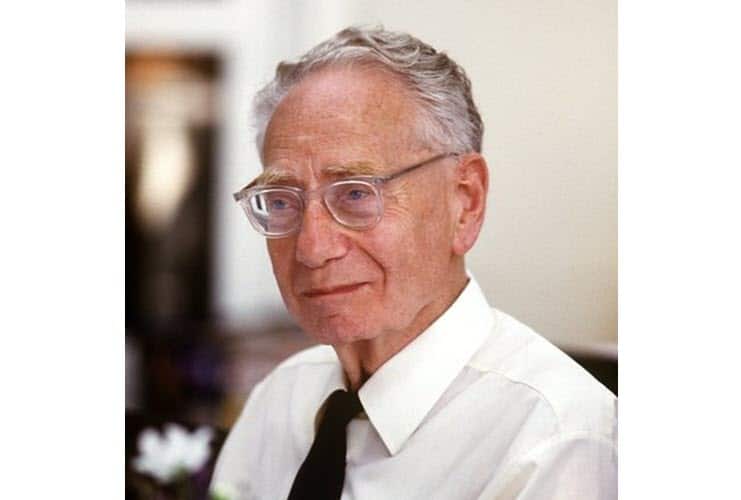Bernard Katz: A Synapse to Nobel Laureate in Neurophysiology

Bernard Katz (26 March 1911 – 20 April 2003) was a German-born British biochemist and physiologist, who made significant contributions to the understanding of how nerves and muscles function. He shared the Nobel Prize in physiology or medicine in 1970 with Julius Axelrod and Ulf von Euler.
Life and Career
He was born on 26 March 1911, in Leipzig, German Empire. He studied at the University of Leipzig in Germany but left in 1933 due to the rise of the Nazi regime. He subsequently moved to the UK, where he continued his studies and research at University College London (UCL).
During World War II, he worked on developing radar at the Telecommunications Research Establishment, before returning to UCL to work on muscle physiology. His most significant contribution to science was his discovery of the mechanism by which neurotransmitters are released from nerve cells. He found that neurotransmitters are stored in vesicles within nerve terminals and that the release of these vesicles is triggered by the arrival of an electrical signal.
Katz’s work provided a detailed understanding of the molecular basis of neurotransmitter release and paved the way for the development of new drugs for treating neurological disorders. He died on 20 April 2003, in London, UK.
Award and Legacy
He received the Nobel Prize in physiology or medicine in 1970 with Julius Axelrod and Ulf von Euler. The Bernard Katz Award is a prestigious scientific award that is named in honor of Bernard Katz, a Nobel Prize-winning British biophysicist. The award is given out every two years by the Biophysical Society to recognize outstanding scientific contributions to the field of biophysics. The Bernard Katz Award was established in 1991, and it has since become one of the most respected awards in the field of biophysics.
In addition to the award, Bernard Katz’s legacy is also reflected in the numerous scientists who have been inspired by his work and have gone on to make their own contributions to the field of biophysics. Katz’s work has had a profound impact on our understanding of how nerve cells communicate with each other, and his legacy continues to inspire new discoveries in the field.
Observer Voice is the one stop site for National, International news, Sports, Editor’s Choice, Art/culture contents, Quotes and much more. We also cover historical contents. Historical contents includes World History, Indian History, and what happened today. The website also covers Entertainment across the India and World.

